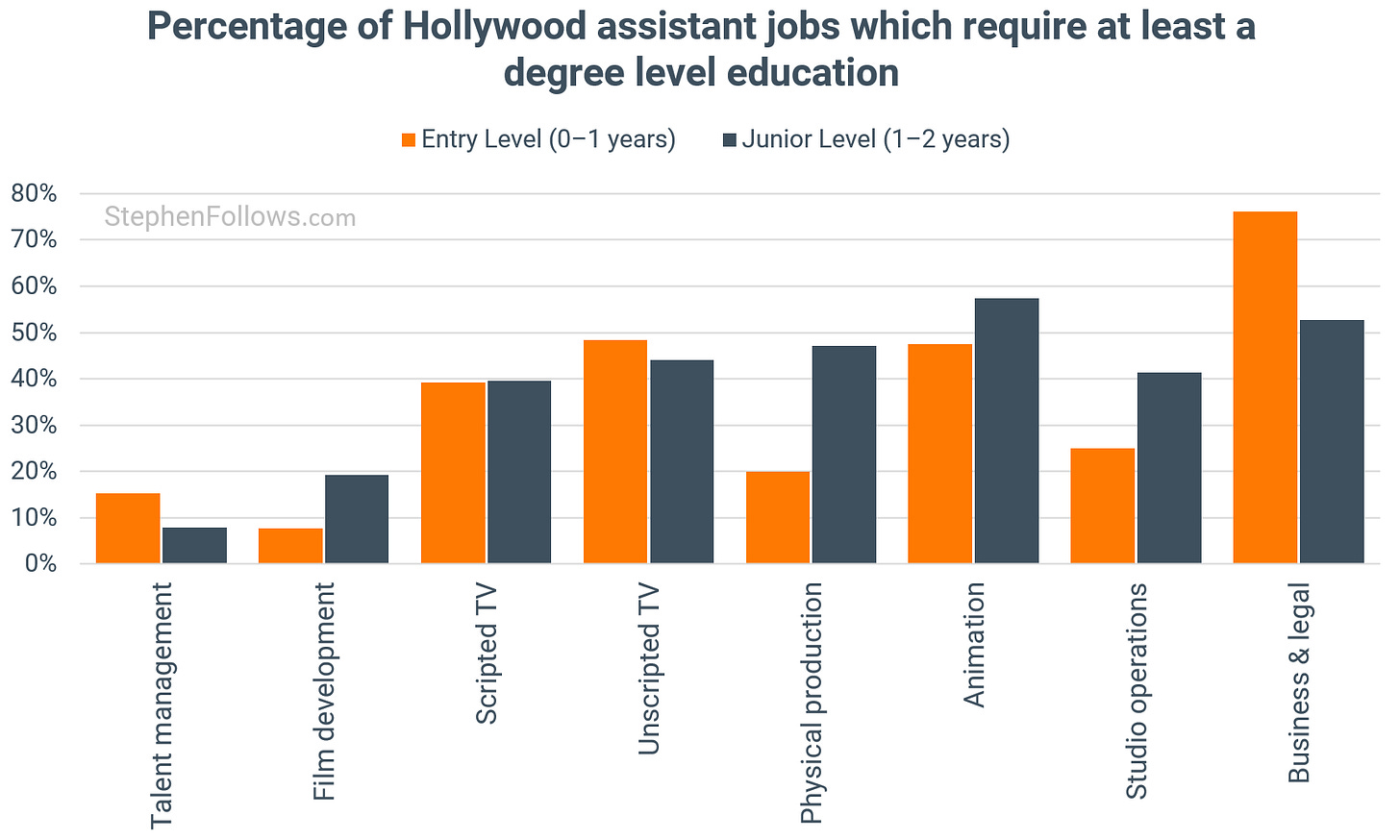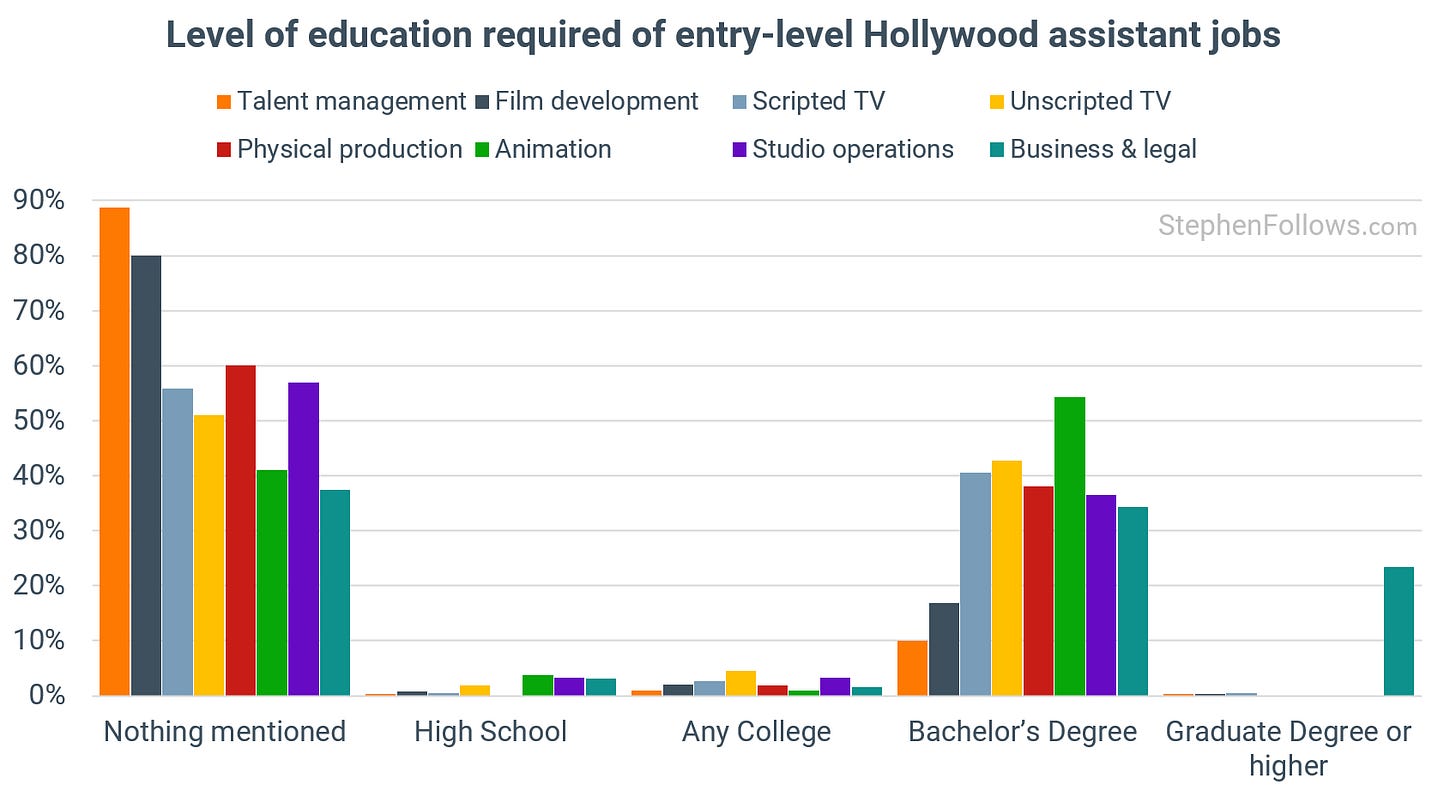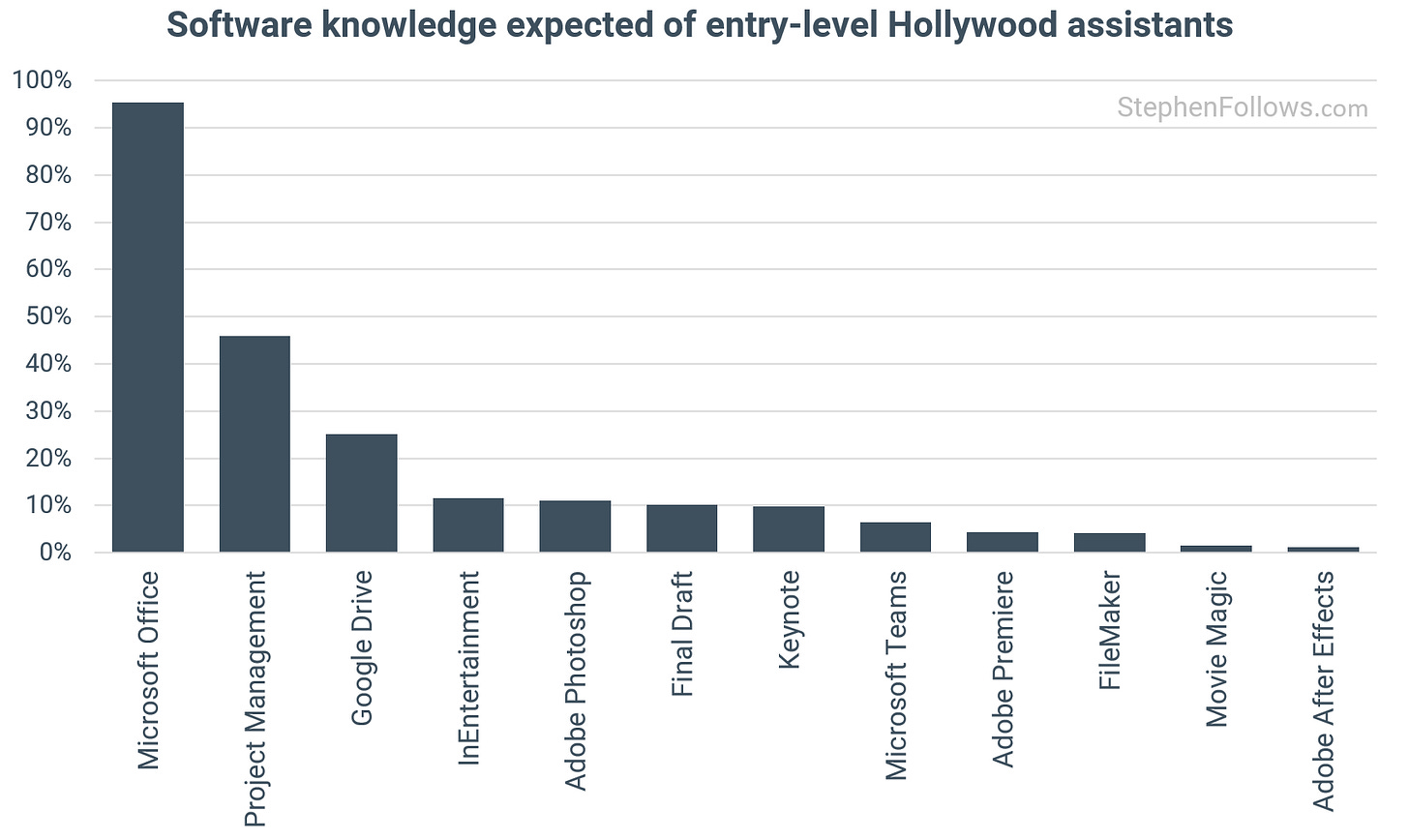What Hollywood wants from entry-level assistants
Insights from studying almost 2,000 real Hollywood assistant jobs, and how to position yourself as their ideal candidate.
This article is part of my ‘Insider Insights’ series, in which I explore what industry professionals really think and do, combining large-scale surveys with deep data analysis to uncover hidden patterns in the business.
Landing an entry level position in Hollywood is one of the industry's enduring mysteries. Often it feels like a mix of blind luck and magic, leaving ambitious graduates and career changers wondering what it really takes.
But from the employer’s perspective, there are a small number of key skills and attributes they are looking for in their ideal candidates.
In order to work out exactly what they are, I studied 1,998 real job advertisements for entry level assistant roles from hundreds of film and TV companies, posted over the past five years.
What emerged were clear, repeatable insights about what each type of Hollywood employer genuinely cares about.
Here’s a summary, before we dive into the detail:
A college degree is helpful but rarely vital. Most entry level Hollywood roles do not specifically require degrees, but departments like scripted TV, animation and legal value them more highly.
Microsoft Office skills are essential everywhere. Hollywood runs on Excel, Word and Outlook, so confidently mastering these programs is a must.
Department preferences guide software priorities. Project management software matters most in production and operations, and Final Draft is valued in creative departments.
Soft skills matter enormously and vary by department. Talent representation and development favour initiative and ambition, whereas production heavy departments strongly prioritise adaptability and flexibility.
Production knowledge is vital for operational roles. Familiarity with budgets, schedules, and logistics is most relevant for studio operations and production jobs and least useful for development or talent representation.
Script reading proficiency is essential for creative roles. Scripted television and film development positions explicitly focus on your ability to provide insightful script coverage and clear story analysis.
Administrative excellence really is crucial. Positions in talent representation, business affairs, and operations place particular value on meticulous calendar management, clear professional email skills, careful scheduling, and efficient task prioritisation.
Creativity is useful in development but not universally needed. Highlight creative projects or storytelling abilities mainly when applying for roles in scripted television or feature development, not in operational or talent representation areas.
Tailoring your skills to each specific department matters. Always emphasise relevant skills aligned with the hiring department’s greatest stated priorities when applying rather than providing a general summary.
Clearly focus your applications to match job advertisements. Your best advantage is explicitly showing you understand exactly what each specific assistant job wants from their ideal candidate and making clear how your experience matches that.
Let’s dig a little deeper:
Education matters, but much less than you might think
There's a common assumption that to land an entry level Hollywood job you must have an impressive education and a degree from a prestigious film school.
But the data paints a much softer picture on academic credentials.
Almost three-quarters of these assistant jobs did not explicitly ask for any particular degree when posting their ads.
That said, the level of education required varied quite noticeably with the kind of role you are applying for.
If your preferred career path involves scripted television, animation, or particularly business and legal affairs, you will find your college degree carries considerable weight. Positions in business affairs and legal were by far the highest, with over three-quarters explicitly requesting the candidate hold at least a bachelor's degree. Animation and scripted shows followed closely, often mentioning degrees among preferred or required criteria.
By contrast, when it comes to film feature development roles or agencies and management companies, formal education appeared far less significant.
If you have a degree, great, but don't rely purely on it to shine. If you lack a degree, don’t stress. Instead, highlight your relevant experience, determination, practical skill set, and ability to learn fast and work hard.
To practically address this:
If applying in scripted TV, animation, or legal roles, put education clearly on your resume or mention it meaningfully in your cover letter.
Without a college degree, speak more confidently about your relevant real world experiences, practical projects, internships, time served in teams, and your proven problem solving capabilities.
The essential software you absolutely must know well
In nearly every advertisement I studied, hiring managers consistently flagged specific software skills they want applicants to master. Overwhelmingly, the most important application to know is Microsoft Office. Far from glamorous perhaps, but Microsoft Excel, Word, and Outlook proved fundamental across virtually every department.
Following Microsoft Office closely in popularity is Google Drive and related sharing tools. These were widespread across more production oriented or development related departments. Companies expect assistants to be entirely comfortable organizing information, scheduling efficiently, managing calendars seamlessly, and sharing data securely and accurately with teams.
Project management software like Asana, Monday.com or Jira turned up repeatedly in advertisements for physical production and operations roles. Your ability to quickly and effectively begin manipulating these helpful tools signals clearly that you understand how modern filmed content manages tight deadlines, complex schedules and distributed teams.
Practical recommendations to immediately improve:






